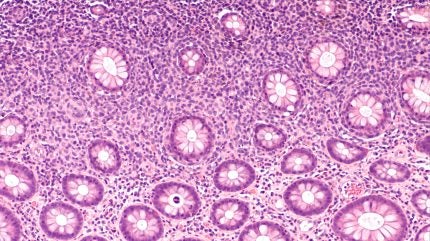
New York-based oncology analytics company, COTA is set to present data showing that older patients with Diffuse Large B-cell Lymphoma (DLBCL) who initiate treatment immediately after diagnosis may see worse outcomes than those who start later.
Set to be announced as part of the upcoming 66th American Society of Hematology 2024 Annual Meeting in San Diego, 7-10 December, the real-world data (RWD) study of DLBCL patients found patients who initiated treatment within the first or second week after diagnosis saw shorter median times to requiring next-line therapy and shorter overall survival rates compared to patients who had a longer interval between diagnosis and first-line therapy.

Discover B2B Marketing That Performs
Combine business intelligence and editorial excellence to reach engaged professionals across 36 leading media platforms.
Additionally, these patients, who are more likely to have been treated in academic medical centres, had higher Eastern Cooperative Oncology Group (ECOG) scores, a typical measurement of a patient’s well-being whilst living with cancer. Additionally, the same results found these patients were likely to have certain high-risk clinical features, including bulky or activated B-cell (ABC) subtypes of the disease.
Results from the study, entitled: “Impact of the Diagnosis-to-Treatment Interval (DTI) on Outcomes in Older Adults with Diffuse Large B-Cell Lymphoma Treated in the Real-World Setting” will be presented alongside results from an earlier study that similarly found that only a minority of older adults with DLBCL had a documented hospice or palliative care referral.
Paul Hamlin, medical director at the David H. Koch Center for Cancer Care, said: “The incorporation of real-world data to assess outcomes in older patients is an invaluable resource, given their general decreased representation in clinical trials. The data being presented at ASH 2024 regarding the DTI interval (Diagnosis to Treatment Interval) and the utilization of hospice/palliative care referrals can help inform future trials and identify ongoing gaps in our knowledge/practices.”
Run in partnership with the Memorial Sloan Kettering Cancer Center (MSK) the research places special emphasis on taking data from community care sites with over 85% of study data coming from these facilities.

US Tariffs are shifting - will you react or anticipate?
Don’t let policy changes catch you off guard. Stay proactive with real-time data and expert analysis.
By GlobalDataElsewhere in the treatment of DLBCL, Incyte has unveiled positive topline data from the Phase III inMIND trial evaluating its CD19-targeting monoclonal antibody Monjuvi (tafasitamab). Meanwhile, a National Institutes of Health (NIH) study into a five-drug combination therapy trial demonstrated substantial tumour shrinking in more than half of the patients.





